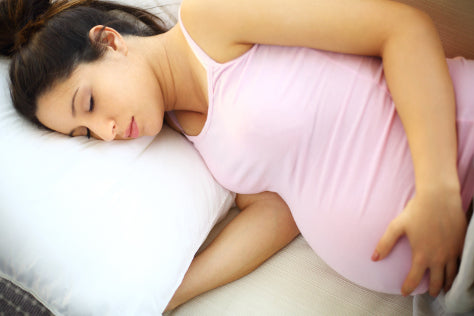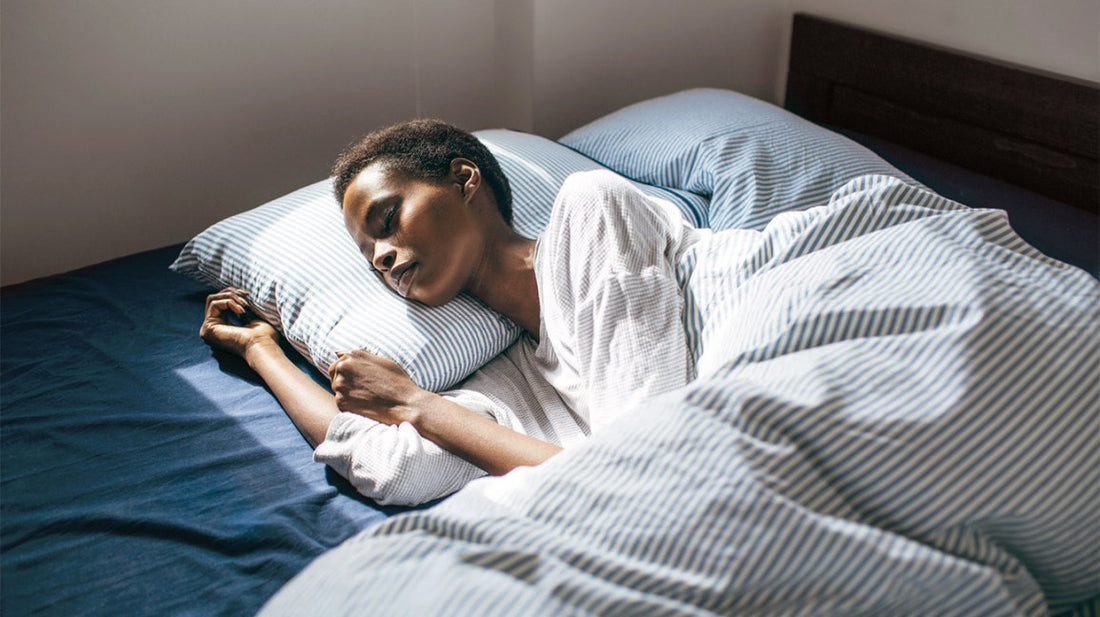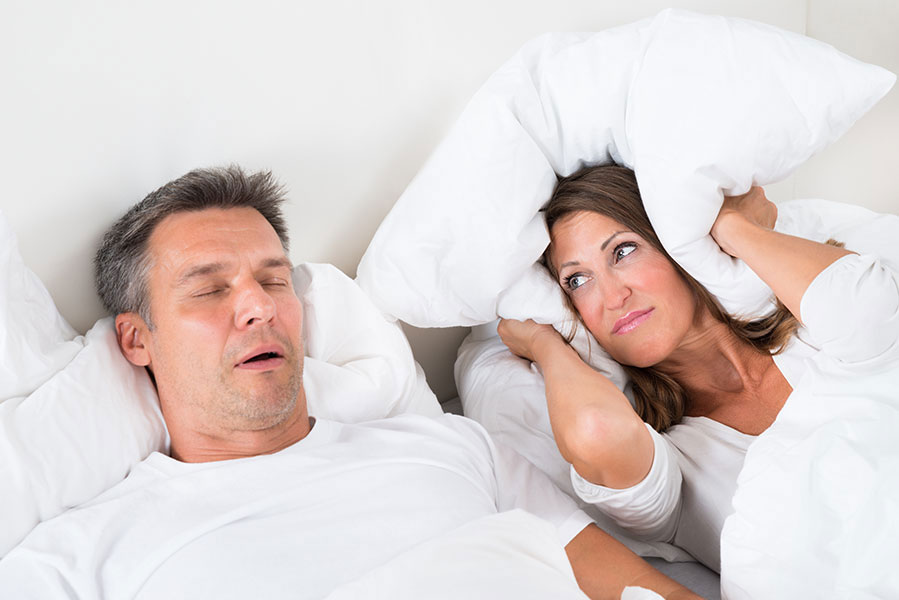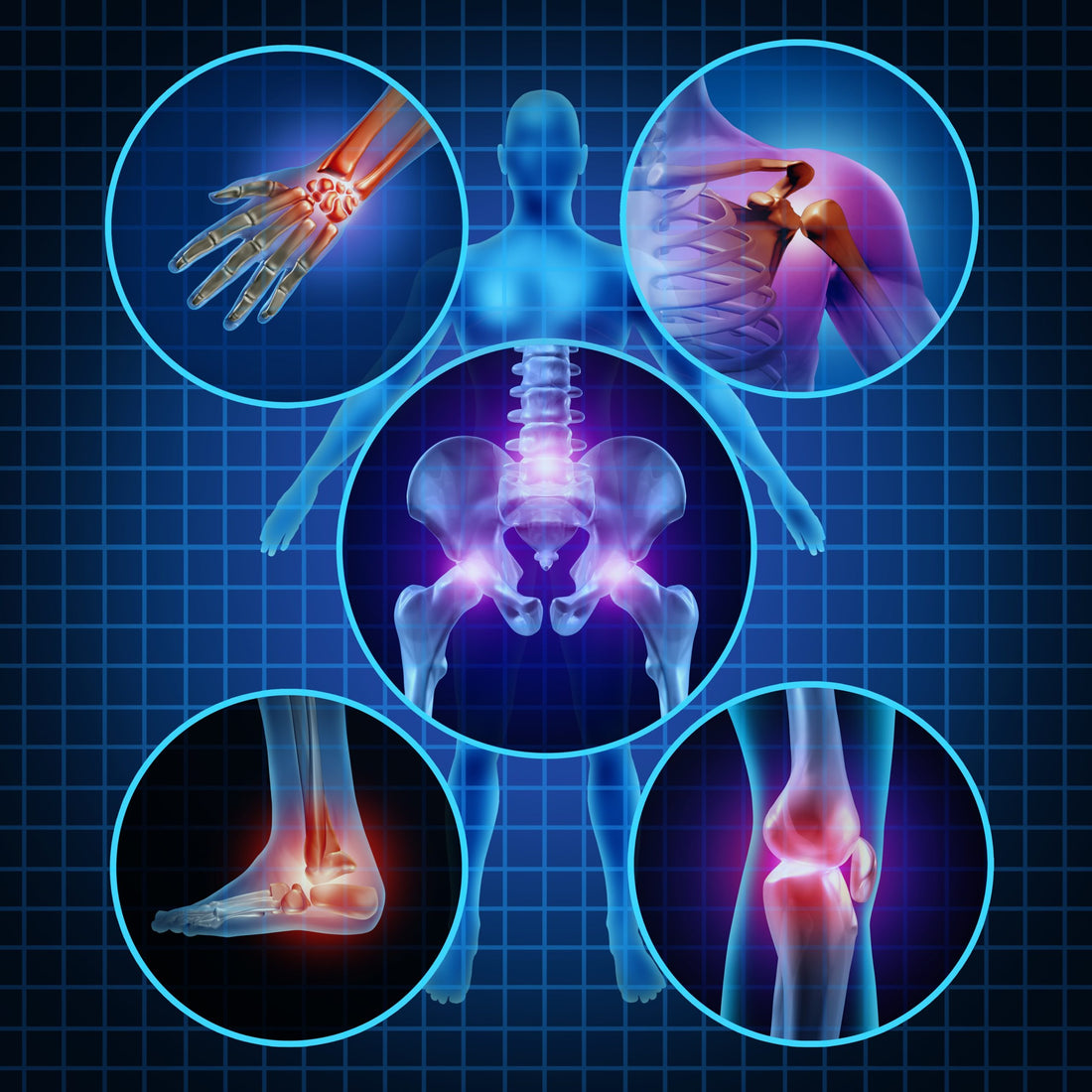News
How the Pandemic May Have Affected Your Sleep
wp:paragraph It’s been almost a year and a half since the Covid-19 pandemic turned the world upside down. In that time, you may have noticed that your sleeping habits may be a lot different these days than they were 18 months ago which is the case for many people, whether they realize this or not. /wp:paragraph wp:paragraph If you find that your sleep habits have changed under the different circumstances, that is fine, as long as you are being smart about it. Here are just a few of the top ways people have changed their sleeping habits to align with the pandemic circumstances. /wp:paragraph wp:paragraph Different Bedtimes /wp:paragraph wp:paragraph You may have found yourself going to bed later than you normally would, and possibly even sleeping in more often. If you are no longer commuting to work and finding yourself at home more often then, this is fine. There is nothing wrong with adjusting your sleep schedule under a change in circumstances, but make sure you are still relatively consistent with the time you go to bed and wake up. /wp:paragraph wp:paragraph Using Sleep Supplements /wp:paragraph wp:paragraph More and more people are relying on over-the-counter sleep supplements, like melatonin, to help them fall asleep. While taking melatonin once in a while is generally okay, it is best not to make this a long-term daily occurrence. It is important to speak to your doctor and get help if you are struggling with falling and staying asleep. /wp:paragraph wp:paragraph Dreams and Nightmares /wp:paragraph wp:paragraph The stress and uncertainty of the pandemic have been causing people to have more vivid dreams and nightmares than they might have had before. Of course, bad dreams happen to everyone now and then, but if this becoming a regular occurrence and negatively affecting your ability to get a good night’s sleep, then it’s time to get help. /wp:paragraph wp:paragraph Increased Screen Time /wp:paragraph wp:paragraph Scrolling your device to find out the latest pandemic news or communicating with loved ones during the lockdowns means more time in front of a screen these days, but don’t overdo it. Too much screen time can negatively affect your sleep habits and overall physical and mental health. It is important to find activities to do that don’t involve screens. /wp:paragraph
about How the Pandemic May Have Affected Your SleepI think I have sleep apnea, now what?
wp:paragraph For many people, a sleep apnea diagnosis, or even the possibility of having sleep apnea without a proper diagnosis can feel overwhelming and scary. It is important to know that this is a condition that is very treatable and can put you on track to getting a good night’s sleep again. Not treating a possible sleep apnea diagnosis can lead to many serious health problems. /wp:paragraph wp:paragraph When to see a doctor; /wp:paragraph wp:paragraph Some of the symptoms, such as loud snoring, insomnia, and waking up with a dry mouth or headache in the morning can be an occasional occurrence, however if this is something that is happening very consistently and affects how you function in the daytime, then it is time to make an appointment with your doctor. Also, if you are having episodes in which you stop breathing during sleep, this can be very serious and needs to be addressed by a medical professional. Too often, sleep apnea patients have no idea this is happening and it is another person (such as your spouse) that is observing this. /wp:paragraph wp:paragraph How to treat sleep apnea; /wp:paragraph wp:paragraph Most mild cases of sleep apnea can be treated with lifestyle changes such as loosing weight or quitting smoking. Everyday allergies can also cause mild forms of sleep apnea, in which an allergy treatment will address it. /wp:paragraph wp:paragraph For those with moderate to severe sleep apnea, your doctor may recommend a therapy called Continuous Positive Airway Pressure (CPAP). This is a mask that is worn overnight and is designed to deliver air pressure that will keep the passages of your airway open throughout the night, and will address any breathing episodes you may have while sleeping. The CPAP machine may seem overwhelming at first, but this has proven to be an extremely effective option for those who suffer from more severe forms of sleep apnea. /wp:paragraph wp:paragraph There are lots of different types of masks, machines and accessories out there, and you will need to find the one that is the best fit for you. Your doctor will have the best advice on this, or will be able to recommend you to a specialist who can answer any questions you have about the CPAP machine and how it works. There are also tons of options available on CPAP Machines - PAPSmart Canada, including masks, machines and other supplies and accessories. /wp:paragraph
about I think I have sleep apnea, now what?How to Get the Best Results out of Your CPAP Machine
When you have trouble sleeping every night and feel exhausted even after just waking up, a visit to your doctor should be in order. If you are diagnosed with sleep apnea, your treatment may include using a Continuous Positive Airway Pressure machine. By wearing a small mask over your face and nose and with straps to secure it in place, your CPAP machine sends a flow of air into your airways. This gentle and continuous stream of air keeps your airways open to ensure that you can get a restful sleep without interruptions due to sleep apnea. Getting a good night’s sleep is one thing. To make sure that every night’s sleep could be a great one, here are some ways to get the best results from your CPAP machine: Use your machine every time you sleep. At night, when you nap, or even when you travel, using your machine every time you snooze encourages not just healthy sleep, but increases your overall health too. Find your comfort zone: Understandably, sleeping while wearing a mask may not be that comfortable at first. But keep at it! It may not take as long as you think to get used to wearing the mask. If certain aspects to your CPAP machine are truly bothersome, ask a professional to help you adjust its fit, settings, or components. Clean machine: Like any machine, for your CPAP to run optimally, it needs to be cleaned on a regular basis. Hand wash parts, use distilled water when cleaning, and remove dust buildup. Daily life: To help your CPAP machine work well, it helps if you tweak aspects of your daily life. Getting more exercise, eating a well-balanced diet, and reducing both caffeine and alcohol intake will all complement your treatment and promote a healthy lifestyle. Dry time: Using a CPAP machine can have a few side effects, including a dry mouth and throat while you sleep. You can use special add-ons, such as a humidifier, specially designed for your CPAP machine to minimize or eliminate issues that can affect your sleep. A good night’s sleep is a beautiful thing. Making sure that you get the right amount of continuous positive airway pressure can make this dream into a reality. And by applying the tips above, you can help ensure that golden slumbers are never far away. Shop Reliable CPAP Machines
about How to Get the Best Results out of Your CPAP MachineSleepy All The Time? Find Out What Sleep Apnea Feels Like
One of the most common sleep disorders today is sleep apnea. This condition causes people to endure many breaks or pauses in their breathing while sleeping. Because it happens while asleep, many sufferers of sleep apnea may simply think that they are just the victims of poor sleeps, and nothing more. The issue is that, if left untreated, you can be subject to more severe health consequences, such as high blood pressure, stroke, and more. So how do you know if you have sleep apnea rather than just a bad sleep? What does it feel like to have sleep apnea? Maybe these following points describe you: You are always sleepy: You often go to bed early and get at least 7 hours of sleep. So why are you still tired all the time? While you think your sleep is uninterrupted, sleep apnea causes you to wake up many times at night, leaving you chronically fatigued, never refreshed. You could have trouble focusing on daily tasks, and you maybe even doze off at unfortunate times. You often wake up with a headache: A very common symptom of sleep apnea is having many headaches, especially after just waking up. Sleep apnea reduces the amount of oxygen to your blood vessels that lead to your brain, causing vascular headaches, even after a supposed good sleep. Cranky, irritable, or depressed: Living with sleep apnea will likely cause you to become very cranky, irritable, and over time, clinically depressed. Losing sleep each night, every night reduces the quality of your sleep, which, in turn, affects your mood. Are you short-tempered, anxious, or have mood swings? It could sleep apnea. If you have experienced the above symptoms consistently, you could have a sleep disorder like sleep apnea. To get a better night’s sleep, ask your doctor about your symptoms to see what treatment options are right for you. Get back to your old self again! Discover the Smart Nora Snoring Solution
about Sleepy All The Time? Find Out What Sleep Apnea Feels LikeThe differences between sleep apnea and insomnia
Many people think that sleep apnea and insomnia are pretty much the same thing, however they are actually very different from each other and today we’re going to look at how this is. With sleep apnea, a person experiences episodes where they stop breathing temporarily during a deep sleep. Left untreated, this can lead to many other serious health consequences such as heart problems or daytime fatigue. On the other hand, insomnia is where someone has a very difficult time falling and staying asleep. Often times it is something short term that is brought on by stress factors from the outside world, but if it is consistent and lasts for more than a month, then this is where chronic insomnia may develop and medical treatment may be required. What these two sleep disorders have in common is the fact that your sleep cycle is interrupted and you are not getting a proper sleep at night. Medical research shows that sleep apnea and insomnia may be very different from each other, however in recent years, it has been discovered that the two are actually very closely correlated to each other. Many patients with chronic insomnia tend to develop sleep apnea, thus having many sleep specialists speculate to believe that insomnia may actually CAUSE sleep apnea. A study done in 2012 showed how strong the correlation between the two is, as many of the insomnia patients involved were actually displaying symptoms of Obstructive Sleep Apnea (OSA). If you thought that was enough, what about those who develop insomnia when they already are diagnosed with, or receiving treatment for OSA? This turns out to happen quite often, a lot of it due to stress and anxiety of using a CPAP machine and also the time it takes to get used to the air pressure flow and the idea of sleeping with a mask over your face each night. Many new CPAP patients find themselves tossing and turning at night over this and many sleep specialists report that chronic insomnia is actually quite common among their sleep apnea patients. Some common symptoms include frequent nighttime urination, dry mouth, morning headaches or daytime sleepiness. Whether you are being treated for sleep apnea or dealing with ongoing insomnia, the number one goal to work towards is getting a good sleep night after night. To help with this, it is important that you report your symptoms to your doctor so they can find the best treatment for you. Save Big During the PAPSmart Fall Sale
about The differences between sleep apnea and insomniaSleep apnea and alcohol
wp:paragraph Many of you may enjoy relaxing with an alcoholic beverage at the end of a long day. Just like many of you may enjoy going to occasions and gatherings where there is an abundance of alcoholic beverages present. /wp:paragraph wp:paragraph It’s something that’s naturally a part of our lives, but have you ever thought about how this could affect your sleep apnea? /wp:paragraph wp:paragraph Many of you may have experienced a terrible night’s sleep after drinking too much. Having too much to drink before bedtime can lead to many symptoms such as insomnia, snoring, headaches and nightmares. And let’s not forget the negative “morning after” effects of too much alcohol, combined with a poor night’s sleep, including fatigue, nausea, drowsiness and more. So it is really worth it? /wp:paragraph wp:paragraph Alcohol and sleep apnea have a very strong link to each other as alcohol can affect your sleep routines in a negative way. Successful sleep apnea treatment and CPAP therapy rely heavily on routine. Going to bed and waking up at the same time each day is crucial, as is getting a consistent amount of sleep every day. /wp:paragraph wp:paragraph It’s one thing to have one or two drinks early in the evening (such as a glass of wine with dinner), but having too much more than that can be harmful to your sleep cycle. And while drinking too much may make you feel more tired come bedtime, it can cause insomnia and more frequent episodes of snoring and breathing problems as you sleep. Alcohol has also been known to cause your breathing to become more slow and shallow and relax your airway too much, which could worsen your sleep apnea symptoms. /wp:paragraph wp:paragraph For this reason, sleep apnea patients are best to avoid any alcohol a few hours before bedtime. If you do slip up and are thrown off your sleep routine for one night, it is very important to get right back on track the next day. /wp:paragraph wp:paragraph All in all, it is not worth it to throw away one night of valuable CPAP therapy over a few too many drinks. Be sure to plan carefully when out at a party or a gathering and know what your limit is and when to say no. /wp:paragraph
about Sleep apnea and alcoholSleep apnea in children
When you think of people with sleep apnea, it’s easy to stereotype the overweight, middle aged man as the perfect sleep apnea candidate. But have you ever thought of who else this could affect? Sleep apnea in children, while not as common, it is something that occurs more often than you think. Often, it starts with snoring: one of the most common symptoms of sleep apnea. But the place where many parents become concerned is when a child is visibly struggling to breathe as they are sleeping. If your child is making a choking or gasping sound in their sleep, this is where it becomes problematic. According to the National Sleep Foundation, children with sleep apnea may also come across as very tired and exhausted throughout the daytime. It could also contribute to behavioural problems at school for some children. For many parents who have a child with sleep apnea, there are many questions and apprehensions. How could this have happened? I thought only adults get sleep apnea? Well there are a number of factors that can contribute to sleep apnea in children. This includes their family history, being overweight, having existing health problems, enlarged tonsils or defects in the airway that have the potential to cause a blockage. As overwhelming as it may be for everyone involved, it is important to try and stay positive, and remember that sleep apnea IS treatable. Many children with sleep apnea use a Continuous Positive Airway Pressure (CPAP) mask to help them breathe normally when they sleep at night. Doctors may also recommend some lifestyle changes for children, including exercise and diet changes. It is also common for doctors to remove a child’s tonsils to help alleviate the sleep apnea. Sleep is vital to a growing child’s health, so this is something that should never be ignored. Your doctor will no doubt be your best resource for any concerns you may have. Be sure to seek out help from your pediatrician if you think your child has sleep apnea. Shop Comfortable CPAP Masks Shop and save on all cpap machines and accessories at Papsmart.com
about Sleep apnea in childrenSleep Apnea and Arthritis
September is Arthritis Awareness month, and there is a lot to be said for its connection to sleep apnea, and of sleep problems in general.A study done in the UK in 2012 states that heavy snorers are twice as likely to develop rheumatoid arthritis. It also mentions that a large portion of arthritis patients who have sleep problems, also develop sleep apnea. So how do we put these two together? Let’s start with what we know: according to the arthritis society of Canada, over 4.6 million Canadian adults report having arthritis, and this number will grow to about 7.5 million in 2036. We often think of arthritis only affecting senior citizens, but it can happen to people at any age (cases have been reported as young as the teen years!) It is known as “joint inflammation” and it has no cure. People who have this condition often experience a lot of pain as a result. While medication does help to alleviate the pain in some cases, it can only do so much. This is why sleep problems are so common in arthritis patients. And when you combine the symptoms of arthritis with what we know about sleep apnea, having a decent night’s sleep can be very difficult for arthritis patients. For this reason, getting proper treatment to sleep apnea is crucial. Too many people, weather they have arthritis or not, miss out on this. Sleep apnea is a very serious condition that has too many negative consequences if left untreated. So many people may think that it doesn’t affect them, or they may feel too overwhelmed with their arthritis treatments and appointments to even think about seeing a sleep specialist. Remember this: sleep has a huge impact on how you live your day to day life, and lack of sleep (or a bad night’s sleep) affects your productivity levels, your energy levels and more. If you have arthritis and you are experiencing problems sleeping, simply start by asking your doctor for advice. They may either give you some tips, or refer you to a specialist if it’s something more serious. Shop now and save up to 50% off our entire inventory!
about Sleep Apnea and ArthritisSleep Apnea and your Relationship
So you’ve been snoring for months, probably driving your spouse crazy, and you have now been diagnosed with sleep apnea. While you both may feel relieved that there IS a treatment to the snoring problems, now a whole new challenge lies ahead. In situations like these, there is a lot more that affects your relationship than just your sleeping patterns. The National Sleep Foundation has reported that 23 percent of couples sleep separately due to snoring and other sleep-related issues. When couples have trouble in the bedroom, it can affect many aspects of their relationship, including intimacy, communication, and irritability towards your partner. Now that you are being treated with a CPAP machine, your partner may be concerned about the noise of the machine and trying to be intimate with a big mask on your face. These are all just worries though, and there are ways that you can overcome your sleep problems that will not interfere with your relationship. Take some time for you and your partner to sit down and discuss the issues you are having. Communication is an important part in any relationship and the only way to start to solve the problem is if you actually talk about it. Seek each other out for support in your frustrations: being angry or upset with your partner for snoring or not understanding the need for a CPAP mask will not do any good. Instead, try to understand your partner’s point of view and WHY they are frustrated or upset, and try to work through it. Do not let your partner’s apprehensions with your CPAP treatment let you stop using the mask all together, as things will only get worse. Research has indeed shown that people who follow through with their CPAP treatment have a better sex life than those who do not If all else fails, there is nothing wrong with having the two of you sleep in separate rooms temporarily. Sometimes a bit of a break can actually do some good for relationships, and leave you both feeling well-rested and happier throughout the day. However keeping this up for too long may put even more of a strain on your relationship as the intimacy, or the “spark” in your relationship could fizzle out Don’t be afraid to seek the help or advice from your doctor, or even a therapist about the problems with your relationship. Save Big During the PAPSmart Fall Sale
about Sleep Apnea and your Relationship






